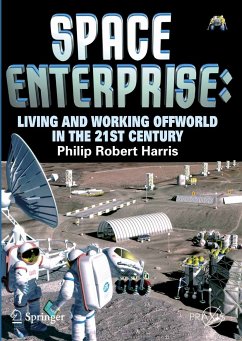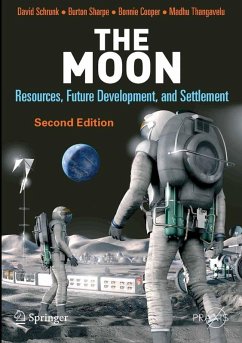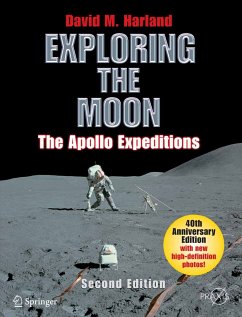
Space Enterprise (eBook, PDF)
Living and Working Offworld in the 21st Century
Versandkostenfrei!
Sofort per Download lieferbar
32,95 €
inkl. MwSt.
Weitere Ausgaben:

PAYBACK Punkte
16 °P sammeln!
In Space Enterprise - Living and Working Offworld, Dr Philip Harris provides the vision and rationale as to why humanity is leaving its cradle, Earth, to use space resources, as well as pursuing lunar industrialization and establishing offworld settlements. As a management/space psychologist, Dr. Harris presents a behavioral science perspective on space exploration and enterprise. In this his 45th book, Phil has completely revised and updated the two previous editions of this classic, placing new emphasis on the need for more synergy and participation by the private sector. He not only provide...
In Space Enterprise - Living and Working Offworld, Dr Philip Harris provides the vision and rationale as to why humanity is leaving its cradle, Earth, to use space resources, as well as pursuing lunar industrialization and establishing offworld settlements. As a management/space psychologist, Dr. Harris presents a behavioral science perspective on space exploration and enterprise. In this his 45th book, Phil has completely revised and updated the two previous editions of this classic, placing new emphasis on the need for more synergy and participation by the private sector. He not only provides a critical review of what is happening in the global space community, but offers specific strategies for lunar economic development. The author analyzes the human factors in contemporary and future space developments, especially relative to the deployment of people aloft. This user-friendly volume offers numerous photographs, diagrams, exhibits, and case studies.
Dieser Download kann aus rechtlichen Gründen nur mit Rechnungsadresse in A, B, BG, CY, CZ, D, DK, EW, E, FIN, F, GR, HR, H, IRL, I, LT, L, LR, M, NL, PL, P, R, S, SLO, SK ausgeliefert werden.












